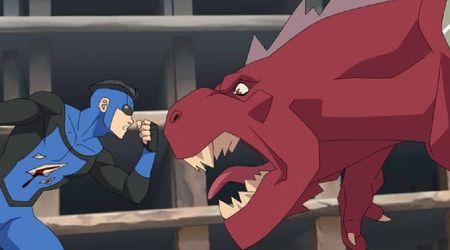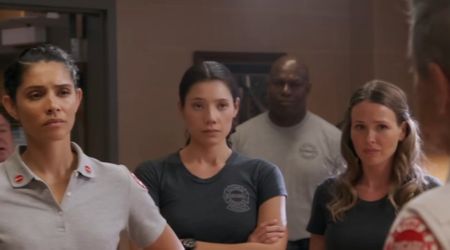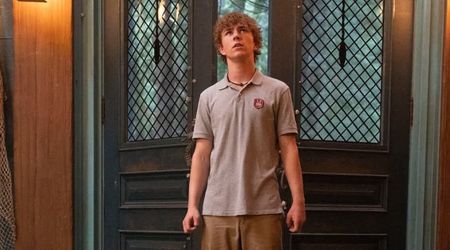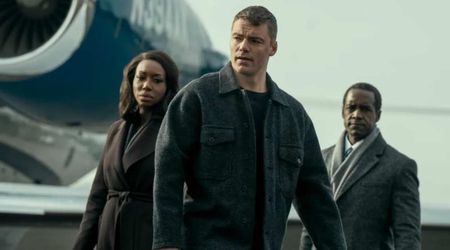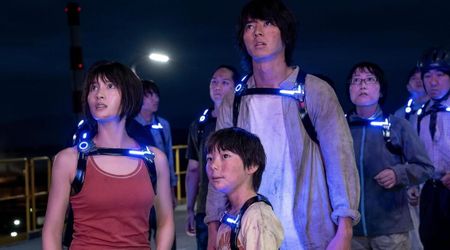'The Trade' Season 2 Episode 3 reveals horrors of cross-border sex trafficking networks that also put minors at risk

As we watched this week's episode of 'The Trade', a headline about migrant shelters in Juarez, Mexico, running out of basic supplies such as diapers, toilet paper, and cleaning materials was fresh in our minds. These are places where several families share one room and good hygiene is the only thing that will help contain coronavirus cases since "social distancing" is impossible.
As US plans to invoke a law to deny entry to foreigners that the US surgeon general determines could possibly carry a contagious illness, the situation will only get worse in these shelters, unofficial migrant camps and even detention centers in the US.
So as you watch the third part of this docu-series, it is hard not to think of the second episode that showed the "stash houses" that migrants are kept in once they cross illegally over to the US side by human trafficking rings. However, bad the scenes shown in Episode 2 were, the situation right now is even worse.
I also think of the other Magdas, their bodies riddled with stress, fatigue and maybe a surprise pregnancy, trying to fight off a COVID-19 virus that preys on a weakened immune system. Of what it is like not having enough testing kits available to check all the people in shelters and camps. It is a humanitarian crisis of immense proportions.

In Episode 3, filmmaker Matthew Heineman continues to follow Magda and Rossni as they travel across Mexico to reach the US border. In the process, they split off from Evelyn and the others from their village.
While Magda with a child has reason to seek asylum, running away from MS-13 goons and certain death, the others will have to entrust their fate to a "coyote", who could kill them or provide safe passage. There are no guarantees.
Before this, we spend time with Marisa, a human rights activist, who has been working to help migrants stuck at the border avoid being trafficked since the 1990s. She tells us that cartels, gangs, and even churches are involved in human trafficking, especially sex trafficking, targetting vulnerable migrant women desperate to cross over. She packs in a hard-hitting quote where she says that unlike drugs that can be sold just once, human beings can be sold again and again.
Marisa makes a particularly empathetic guide into the lives of these women and their children trapped in the no man's land of temporary shelters on the Mexican side as they try to find ways (and people) to cross over. Domestic abuse is commonplace with one child wishing her father was killed just so her mother, siblings and her can escape his cruelty. She shows Marissa the burn mark on her hand.
Living hand to mouth on the edge of an impossible dream with an uncertain future does exacerbate tensions and abusive relations that already exist to terrible proportions.
Adding to this, cartels and gangs routinely pick up and rape women. Marisa speaks to one such rape survivor who while recounting how her rapists were thinking of killing her after they were done, says: "I was wishing they did kill me". She breaks down entirely remembering the trauma.

Heineman then switches to another POV, of Sochil, a young woman, to show just how vulnerable women are in these border towns.
Sochil was sexually abused (from the time she was 8) by leaders of "La Luz Del Mundo" - a powerful church with a strong base in Mexico and the U.S. The worst betrayal she experienced was that it was her own aunt, brainwashed by the church, who took her to these gang rape sessions and told Sochil that they were "blessings".

The church has been identified as one with a well-developed and entrenched sex-trafficking network, operating on both sides of the border. While Sochil's complaints have seen action taken from the US side, she is still trying to get Mexican authorities to take action.
Living in the church's backyard, Sochil (who has children of her own) has every right to be scared for her life. But the lie that defined her childhood means that she is willing to take the risk so that other girls don't end up like her with immense psychological and emotional scars.
Rossni also relives the trauma of his brother's death while collecting photographs and videos documenting his death at the hands of MS-13.
Magda (who still hasn't told him about her pregnancy) looks on stony-faced. She is all business and her only mantra is that they have to keep moving. She is so on edge that she doesn't have the luxury to mourn as she is on auto-pilot to get the papers and documentation in place so that she can plead successfully to be given asylum with her child.
The only narrative thread in this episode that is slightly jarring is the Homeland Security officers from Texas (cowboy hats and all) following a separate potential sex-trafficking case to Ohio, where they confront a suspect about his suspicious relationship with a female minor.
This segment is a bit like a COPS episode (Homeland Security Special) as they corner Roberto who seduces a 16-year-old minor while pretending to be a friend to the family in Honduras, sending cash and gifts, and eventually paying for the girl to come to the US, illegally.
But in all, Episode 3 is another riveting chapter about the business of moving bodies across the border by powerful gangs, cartels, and churches.
'The Trade' Season 2 Episode 3 aired on March 20 at 9/8c. The final episode will air on March 27.

